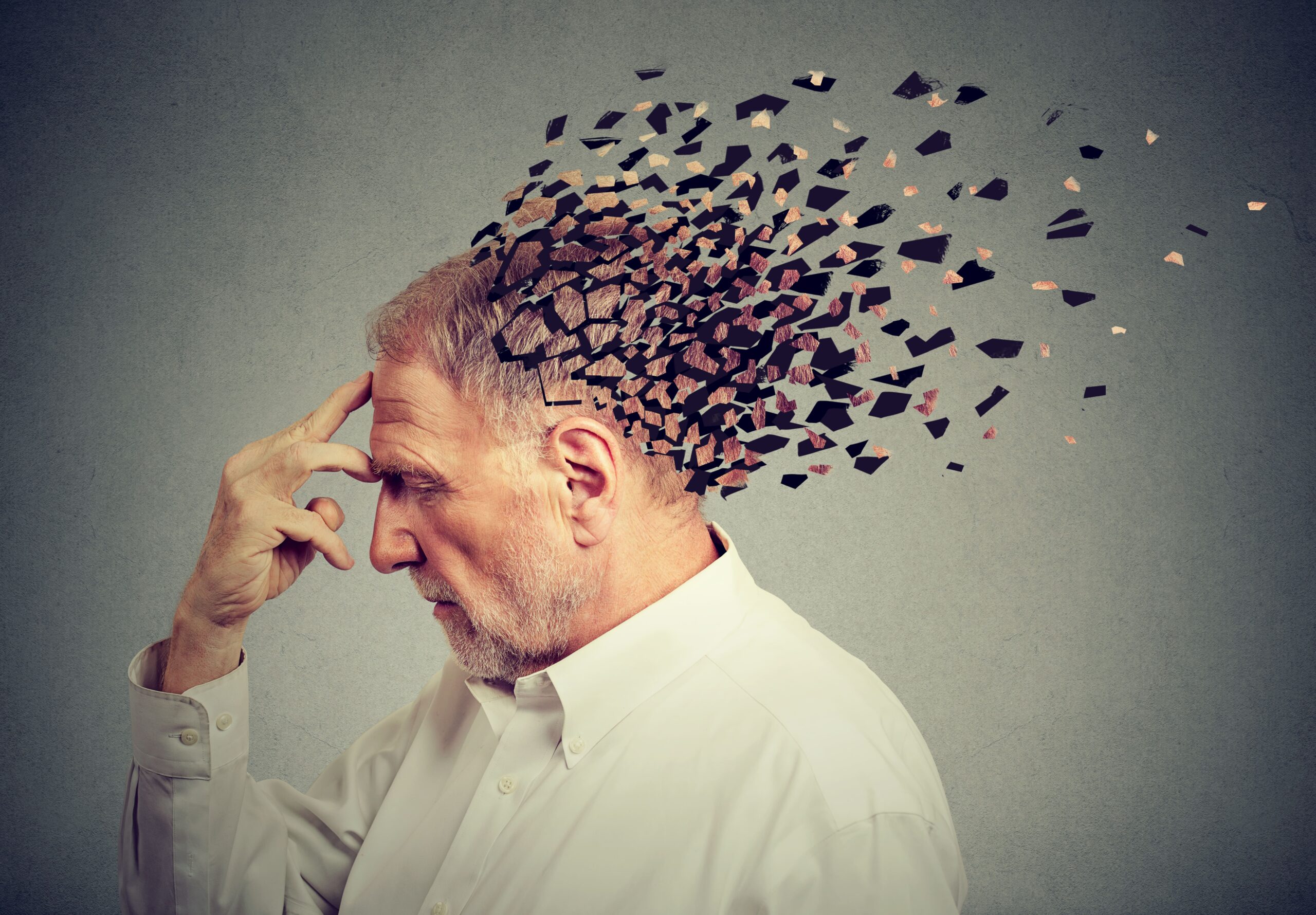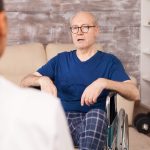
Key facts
- Dementia is a condition that affects your thinking, behaviour and ability to do everyday tasks.
- While dementia is more common in older Australians, it is not a normal part of ageing.
- See your doctor if you have memory loss, difficulty with familiar tasks, language problems or changes in mood or personality.
- There is no cure for dementia.
- Caring for someone with dementia can be difficult, so make sure you get help and look after yourself.
What is dementia?
Dementia is a broad term used to describe the gradual loss of your:
- memory
- intellect
- ability to think rationally
- social skills
Dementia is a word used to describe a group of diseases that cause a gradual loss of brain function. Dementia is not a specific disease. In fact, there are more than 100 different diseases that can cause dementia. Some that you might have heard of are:
- Alzheimer’s disease
- Lewy body disease
- vascular dementia
People in their 40s and 50s can get dementia. This is called younger onset dementia. Around 1 in 12 Australians aged 65 years and over are living with dementia. While dementia is more common in older people, it is not a normal part of ageing.
Rates of dementia are higher in Aboriginal and Torres Strait Islander peoples.
What are the signs of dementia?
Signs of dementia might not be easy to see at first.
You might have:
- memory loss
- changes in your planning and problem-solving skills
- trouble doing everyday tasks
- changes in your mood and personality
- a lack of interest in things and activities you used to enjoy
- poor judgement and lack of insight
- problems with speaking and writing
- confusion about time and place
Remember that not all memory loss is due to dementia. Speak with your doctor if you feel that you or someone you care about:
- has memory loss
- has behaviour changes
- is less able to carry out everyday activities
What causes dementia?
Many different diseases cause dementia. Some of the most common diseases are:
- Alzheimer’s disease
- vascular dementia
- Lewy body disease
- frontotemporal dementia
- alcohol related dementia
Alzheimer’s disease is the most well-known cause of dementia. Alzheimer’s disease is caused by the build-up of proteins around your brain cells. This decreases the levels of neurotransmitters (chemical messengers) in your brain. These changes interfere with your thinking, behaviour and short-term memory.
Vascular dementia results from brain damage caused by less blood going to your brain. This can happen after:
- a stroke
- multiple mini-strokes
- untreated high blood pressure or diabetes
Lewy body disease causes unusual round clusters of protein (Lewy bodies) to grow inside certain brain cells. These cells eventually break down and die, causing dementia.
Frontotemporal dementia is caused by damage to either or both the frontal or temporal lobes of the brain. This type of dementia affects:
- behaviour
- personality
- language
- movement
Alcohol-related dementia is a form of dementia caused by drinking too much alcohol. It affects:
- memory
- learning
- personality
- other mental functions
It’s unclear whether this is caused by:
- the effects of alcohol on the brain cells
- a lack of vitamin B1 (thiamine) due to heavy drinking
When should I speak to a doctor about dementia?
See your doctor if you notice a few of these signs:
- Memory loss — forgetting things that should be familiar, and not remembering them later.
- Difficulty with familiar tasks — for example, making a meal then forgetting to eat it.
- Language problems — forgetting simple words or substituting the wrong word.
- Disorientation of time and place — for example, forgetting how to get home.
- Poor judgement — such as making risky moves when driving.
- Problems with abstract thinking — such as counting and doing finances.
- Misplacing things — putting things in the wrong place.
- Changes in mood or behaviour — such as rapid mood swings for no apparent reason.
- Changes in personality — becoming more suspicious, fearful, uninhibited or outgoing than before.
- Loss of initiative — becoming more passive or uninvolved in activities.
It’s important not to assume someone has dementia based on these symptoms alone. Other conditions can also cause dementia-like symptoms , for example:
- depression
- delirium
- infections
- hormone imbalances
- poor diet
How is dementia diagnosed?
An early diagnosis allows you to get support quickly. Your doctor may refer you to a:
- neurologist (a doctor who specialises in the brain)
- neuropsychologist (a psychologist with a special interest in dementia)
- geriatrician (a doctor who specialises in looking after older people)
Diagnosing dementia needs a full medical and psychological assessment. This may include:
- a detailed medical history
- tests to check your senses and movement
- mental tests for memory, focus and counting skills
- blood tests
- urine tests
- other tests, such as a chest x-ray, ECG, CT scan or MRI scan
How is dementia treated?
Unfortunately, there is no cure for dementia at the moment.
Many people living with dementia learn ways to cope with their illness and improve their quality of life.
General care and support
It’s important to have carers who take time to build empathy and trust. They can help offer a safe and predictable environment.
In some cases, it’s helpful to make changes to your home. This can help you feel less disoriented (e.g. instructions on how to open doors).
Visit Health Victoria’s website for some ideas on creating ‘dementia-friendly environments’
Communication approaches
Certain ways of talking may help people living with dementia feel supported.
- Validation therapy — Instead of challenging the reality of someone with dementia, build empathy by speaking to their feelings. For example, if a person living with dementia is waiting for their partner to come home, you can acknowledge and empathise with their feelings. It doesn’t matter that their partner has died and they don’t remember.
- Music therapy — People with dementia often remember old familiar songs. Familiar tunes can unlock memories and feelings. However, it’s important to know their musical likes and dislikes.
- Reminiscing — is a way of remembering past events (for example by reading an old letter, or looking at childhood photographs). It usually triggers positive memories and feelings, even if they can no longer speak.
A memory book can offer pleasure and pride for a person who feels confused about the present. A memory book is a visual diary, like a photo album. It can store photographs, letters, stories and drawings.
Medicines
While no medicines cure dementia, some medicines can help with your memory and thinking.
Cholinesterase inhibitors and memantine can help with the symptoms of dementia. They don’t cure the disease or slow it down.
Other medicines can be used to help with other symptoms of dementia.
- Delusions or hallucinations: Antipsychotic medicines are sometimes used to treat serious delusions and hallucinations, agitation and aggression. However, they can cause unwanted side effects and may raise the chance of stroke in some people.
- Depression: People with dementia often get clinical depression. Some people may be prescribed antidepressant medicines.
- Anxiety: Sometimes people with dementia may need medicines to treat anxiety and panic attacks.
- Sleep: Some medicines for dementia can make it difficult to sleep at night. Sleep-inducing medicines should be used carefully, as people can become dependent on them.
It’s important to have regular home medicine reviews.
Watch the video below and learn more about the therapies for dementia.
Can dementia be prevented?
Because the causes of dementia are not yet fully known, there is no sure way to prevent dementia.
However, you can keep your brain healthy by:
- being physically active
- quitting smoking
- eating a balanced diet
- drinking alcohol in moderation
- keeping your brain active, for example doing crosswords or learning a language
- being socially active
- looking after your weight
- looking after your hearing
It’s also important to manage any other conditions that you might have. Such as:
- hypertension (high blood pressure)
- diabetes
- cholesterol
- depression
- hearing loss
What is sundowning?
Sundowning refers to when people with dementia find their symptoms worsening later in the day.
People experiencing sundowning can become more disorientated, more demanding, more suspicious or more aggressive. They could pace about or yell and scream. Their attention span might be more limited than usual.
No one knows what causes sundowning, but many things might play a part. These include:
- changes in light, which affect the body clock
- inadequate or disturbed sleep
- difficulties communicating about things like pain, hunger or fear
- a feeling of being alone, if there are fewer caregivers around
- being tired at the end of the day
- a lack of routine daytime activities
- being over-medicated
Sundowning can be worse after a change in routine, or if the person with dementia is not where they usually spend the day or evening.
If you think the person you care for is experiencing sundowning, it’s a good idea to keep a diary to note down the symptoms and at what time things happen. This makes it easier to discuss the symptoms with a doctor or dementia care nurse.
How do I care for someone with dementia?
Caring for someone who is living with dementia can be rewarding. It can also make you feel frustrated and helpless.
Plan ahead — It is wise to plan early for the future. Encourage your family member or friend to arrange for a trusted person to manage their affairs through a power of attorney.
Also, support them to write an Advanced Care Plan. This details the healthcare they want to get as their dementia gets worse.
Care for yourself — Looking after a loved one with dementia can be tough and draining. It’s important to take breaks from your caring role to look after your own needs.
Other family members and friends may be happy to give you a break from caring. Often you just have to ask. You may also be able to use respite care.
Breaks from caring can be:
- time for you to relax and recharge
- time together away from the usual routines
- time for the person with dementia to enjoy themself



